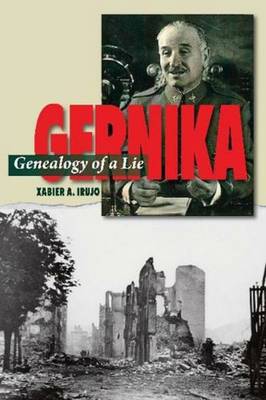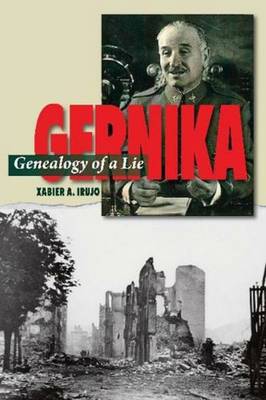
- Retrait en 2 heures
- Assortiment impressionnant
- Paiement sécurisé
- Toujours un magasin près de chez vous
- Retrait gratuit dans votre magasin Club
- 7.000.0000 titres dans notre catalogue
- Payer en toute sécurité
- Toujours un magasin près de chez vous
41,95 €
+ 83 points
Description
On 26 April 1937, a weekly market day, nearly sixty bombers and fighters attacked Gernika. They dropped between 31 and 46 tons of explosive and incendiary bombs on the city center. The desolation was absolute: 85 percent of the buildings in the town were totally destroyed; over 2,000 people died in an urban area of less than one square kilometer. Lying is inherent to crime. The bombing of Gernika is associated to one of the most outstanding lies of twentieth-century history. Just hours after the destruction of the Basque town, General Franco ordered to attribute authorship of the atrocity to the Reds and that remained the official truth until his death in 1975. Today no one denies that Gernika was bombed. However, the initial regime denial gave way to reductionism, namely, the attempt to minimize the scope of what took place, calling into question that it was an episode of terror bombing, questioning Francos and his generals responsibility, diminishing the magnitude of the means employed to destroy Gernika and lessening the death toll. Even today, in the view of several authors the tragedy of Gernika is little less than an overstated myth broadcasted by Picasso. This vision of the facts feeds on the dense network of falsehoods woven for forty years of dictatorship and the one only truth of El Caudillo. Xabier Irujo exposes this labyrinth of falsehoods and leads us through a genealogy of lies to their origin, metamorphosis and current expressions. Gernika was a key event of contemporary European history; its alternative facts historiography an exemplar for commentators and historians faced with disentangling contested viewpoints on current military and political conflicts, and too often war crimes and genocide that result. Published in association with the Canada Blanch Centre for Contemporary Spanish Studies
Spécifications
Parties prenantes
- Auteur(s) :
- Editeur:
Contenu
- Nombre de pages :
- 200
- Langue:
- Anglais
- Collection :
Caractéristiques
- EAN:
- 9781845199753
- Date de parution :
- 01-04-19
- Format:
- Livre broché
- Format numérique:
- Trade paperback (VS)
- Dimensions :
- 152 mm x 229 mm
- Poids :
- 317 g

Seulement chez Librairie Club
+ 83 points sur votre carte client de Librairie Club
Les avis
Nous publions uniquement les avis qui respectent les conditions requises. Consultez nos conditions pour les avis.







